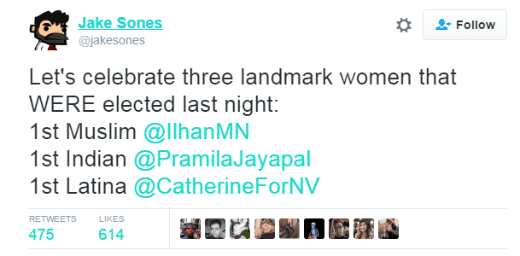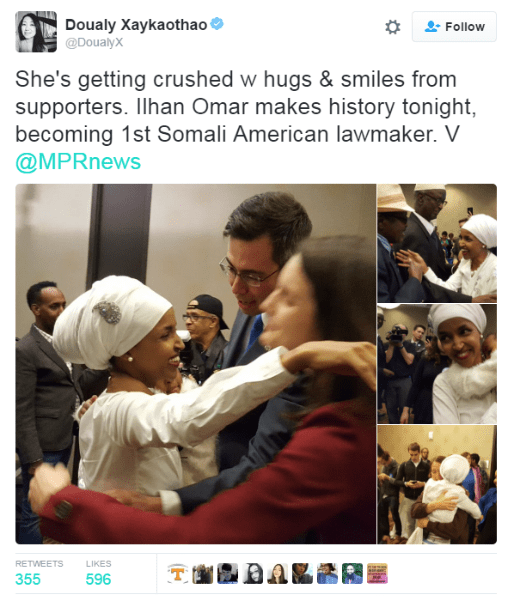History was made Tuesday when Ilhan Omar became the first Somali-American Muslim woman elected to a seat in the Minnesota state legislature.
RELATED:
First Somali-Born Muslim-American Woman Wins Democratic Primary
Her first victory came during the August primaries when she defeated a 44-year incumbent to become the Democratic nominee. Soon to be former state Representative Phyllis Kahn, who held the seat for 22 terms, is the longest-serving legislator in Minnesota's history.
Omar campaigned on the progressive platform of making college affordable, advocating for criminal justice reform, economic equality and clean energy.
Her first intended bill will call for automatic voter registration when people turn 18, or to get a driver’s license.

The Minneapolis district which Omar will likely represent, District 60B, is near the University of Minnesota campus and is home to a sizeable number of Somali and other East African immigrants.
OPINION:
Why Trump Won — And What’s Next
The 34-year-old Omar fled Somalia's civil war as a child and lived for four years in a Kenyan refugee camp before moving to Minnesota. She is currently director of policy initiatives at Women Organizing Women.
“It was the first time, coming from Africa, that I realized that I was Black, and that my Muslim identity was a thing, and that this is the first time I realized the stigma that I carried as an immigrant and a refugee and a Muslim person who was visibly Muslim, with a headscarf,” she told Fusion in an interview earlier this year. “And that my Blackness was a source of tension.”
She told Fusion that her interest in politics began at 14 years old, when she began taking her Somali grandfather to state caucuses, acting as his translator.
Having studied political science and international studies at North Dakota State University, she has worked in local politics for the past decade.
RELATED:
Clinton Calls for Giving Trump 'Open Mind and Chance to Lead'
In 2014, while serving as the vice chair for her senate district at a caucus for the state Democratic–Farmer–Labor Party, she was physically attacked by eight men after she attempted to enforce caucus voting rules.
“Being attacked wasn’t a deterrent for me. I don’t think I looked at it as a thing where I needed to step back or distance myself from this process,” she told Fusion. “Every single election cycle I make a request of people who have dealt with this system that has been oppressive for a lot of minority communities for over 100 years: I ask them to believe in the system and to work and make the effort in changing it, because things are changeable in this country.”
Omar recognizes her historic win.
“Oftentimes, you are told to be everything but bold, but I think that was important for me in running as a young person and running as someone who is Muslim, a refugee, an immigrant,” she said. “To believe in the possibility that all of my identities and otherness would fade into the background, and that my voice as a strong progressive would emerge if I was bold and believed in that — that made a huge difference for me and my candidacy.”
